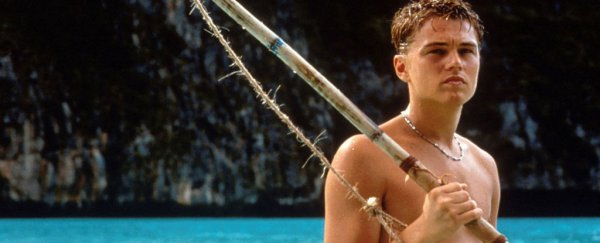It's pretty clear that human society has left an indelible impression on the natural environment around us, with our impact on the planet even qualifying as a new geological epoch – but surely if you travelled far enough in search of an untouched, pure oasis, you could still find a natural sanctuary on Earth unsullied by the hands of humankind?
Nope. At least, not according to a new study, which trawled through decades of archaeological data and found that there are no remaining pristine places on Earth that are unaffected by human society and activity, and there probably hasn't been one for thousands of years.
Archaeologist Nicole Boivin from the University of Oxford and the Max Planck Institute for the Science of Human History in Germany and fellow researchers examined 30 years of archaeological studies and looked at new datasets on ancient DNA and microfossils, along with statistical models.
Their conclusion is that humanity's impact on the planet didn't simply take off with the massive technological and social changes of the Industrial Revolution, but was actually observable many thousands of years before in the Late Pleistocene, in the form of species extinctions linked to human population growth going back as far 195,000 years.
The researchers say the most significant example of this is the dramatic reduction in megafauna (big beast species) between about 50,000 and 10,000 years ago, which had dramatic effects on ecosystems in terms of things like seed dispersal.
The advent of agriculture put even greater evolutionary pressures on plants and animals, creating "unprecedented and enduring impacts on species distributions". But these impacts didn't just lead to extinctions. The kinds of animals humans favoured – such as domesticated dogs, plus sheep, goats, chicken, and cattle – surged in numbers.
Humans also colonised islands, which had big effects seeing as islands' natural ecosystems lack "the resilience of continental biomes". As new species were introduced, indigenous ones were overpowered. The expansion of trade from the Bronze Age onwards has compounded many of these effects, and all long before the Industrial Revolution kicked off.
In other words, simply by colonising new land and farming animals we wanted to eat, we had an impact on every single part of the planet.
The researchers say the discovery of this long-term human environmental impact means we should take a broader and more pragmatic approach to conservation efforts – as clearly it's in our nature to alter nature, and we'll need to plan accordingly if we realistically want to help save the planet from environmental threats.
"Archaeological evidence is critical to identifying and understanding the deep history of human effects," said Boivin.
"If we want to improve our understanding of how we manage our environment and conserve species today, maybe we have to shift our perspective, by thinking more about how we safeguard clean air and fresh water for future generations and rather less about returning planet Earth to its original condition."
According to the researchers, that "original condition" is something that hasn't existed for thousands of years, so we should focus on the good we can do for the sake of the planet as it is now, rather than aiming to restore a long-gone oasis that only exists now in our imaginations.
"Rather than an impossible return to pristine conditions, what is needed is the historically informed management of emerging novel ecosystems to ensure the maintenance of ecological goods and services," the authors write in Proceedings of the National Academy of Sciences. "Such efforts need to account for the needs of all stakeholders and balance local livelihoods against first world agendas."
"Cumulative archaeological data clearly demonstrates that humans are more than capable of reshaping and dramatically transforming ecosystems," adds Boivin. "Now the question is what kind of ecosystems we will create for the future. Will they support the well-being of our own and other species or will they provide a context for further large-scale extinctions and irreversible climate change?"
